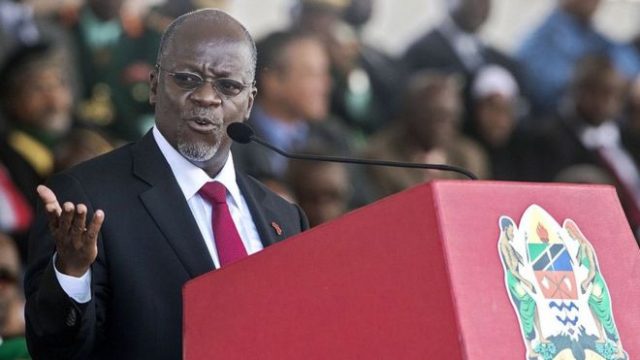
Tanzania government’s plan to amend eight laws has caught the eyes of Civic Society Organizations in the country, who are suspicious that the changes will curtail their operations and put their existence at risk.
The changes are contained in a bill of miscellaneous amendments No 3 of 2019 in which the government seeks to draw a clear definition and meaning of a company on one side and an NGO and a Society on the other. If the bill becomes law, the amendments will see swift changes on registration and undertakings of NGOs, companies and civil societies, among others.
Thirty representatives from the civil society have described the plan as ‘a dark cloud’ in Tanzania’s development. The executive director for the Legal and Human Rights Centre (LHRC) Anna Henga asked the government to give stakeholders between six and 36 months to prepare a better law saying “No single NGO in will be safe in Tanzania if the amendments are approved as proposed.”
According to an NGO executive, although there are some positive aspects in the amendments, the implementation of the envisaged law should be something of great concern
“This is why we needed time before the amendments reached this stage. Some of the sections even go as far as restricting people’s rights to freedom of expression. Some of the sections may create problems even in government because within two months they will have de-registered some of the NGOs which are here to help the needy,” said Mr Aidan Eyakuze, Chief Executive Twaweza.
The amendments will affect the Companies Act, the Copyright and Neighbouring Rights Act, the Films and Stage Plays Act, the NGOs Act, the Societies Act, the Statistics Act the Tanzanian Shipping Agencies, Act and the Trustees’ Incorporation Act. Every NGO will be required to make available to the public the prepared annual audited reports.
“The Registrar of NGOs is also empowered to conduct an evaluation of the activities carried out by an NGO. The additional of section 4A is intended to give the Registrar investigative powers.,” reads part of the amendments.
The amendments also seek to formalize the informal video exhibiting centres and create a new revenue stream for the government, through the Tanzania Film Board (TFB). A new section of Films and Stage Plays Act will require any foreign production company or individual using Tanzania scene to submit the content to TFB or any other authority appointed by the board for verification before publication.
Criticism from international bodies has highlighted that the proposed amendments would restrict the rights to freedom of expression, peaceful assembly and association, including placing impermissible restrictions on CSOs and entrenching censorship.
“The Tanzania government must allow for meaningful participation in lawmaking processes by giving people adequate time to review, collate and present their views on a law that will impact their lives enormously,” Amnesty International deputy regional director for East Africa, the Horn and the Great Lakes, Sarah Jackson


